- Home
- Oscar Wilde
The Wit and Wisdom of Oscar Wilde Page 5
The Wit and Wisdom of Oscar Wilde Read online
Page 5
—Lord Henry, The Picture of Dorian Gray, Ch. 3
“As for being poisoned by a book, there is no such thing as that. Art has no influence upon action. It annihilates the desire to act. It is superbly sterile. The books that the world calls immoral are books that show the world its own shame.”
—Lord Henry, The Picture of Dorian Gray, Ch. 19
I don’t believe there is a single dramatic critic in London who would deliberately set himself to misrepresent the work of any dramatist—unless, of course, he personally disliked the dramatist, or had some play of his own he wished to produce at the same theatre, or had an old friend among the actors, or some natural reasons of that kind.
—“Mr. Oscar Wilde on Mr. Oscar Wilde: An Interview”
ERNEST: It seems to me that the imagination spreads, or should spread, a solitude around it, and works best in silence and isolation. Why should the artist be troubled by the shrill clamour of criticism? Why should those who cannot create take upon themselves to estimate the value of creative work? What can they know about it? If a man’s work is easy to understand, an explanation is unnecessary.
GILBERT: And if his work is incomprehensible, an explanation is wicked.
—The Critic as Artist, Pa rt 1
Eloquence is a beautiful thing, but rhetoric ruins many a critic …
—“Ben Jonson”
… I think that the first duty of an art critic is to hold his tongue at all times, and upon all subjects.
—The English Renaissance of Art”
“What possible difference can it make to me what the New York Herald says? You go and look at the statue of the Venus de Milo and you know that it is an exquisitely beautiful creation. Would it change your opinion in the least if all the newspapers in the land should pronounce it a wretched caricature? Not at all. I know that I am right, that I have a mission to perform. I am indestructible!”
—Wilde, as quoted in conversation [OW]
ERNEST: But what is the difference between literature and journalism?
GILBERT: Oh! journalism is unreadable, and literature is not read.
—The Critic as Artist, Part 1
The critic has to educate the public; the artist has to educate the critic.
—Letter [August 13, 1890]
I am afraid that writing to newspapers has a deteriorating influence on style. People get violent, and abusive, and lose all sense of proportion, when they enter that curious journalistic arena in which the race is always to the noisiest.
—Letter [August 13, 1890]
Chapter 7
DISTINGUISHING CHARACTERISTICS
“There are only two kinds of people who are really fascinating—people who know absolutely everything, and people who know absolutely nothing.”
—Lord Henry, The Picture of Dorian Gray, Ch. 7
Do you know I am afraid that good people do a great deal of harm in this world. Certainly the greatest harm they do is that they make badness of such extraordinary importance. It is absurd to divide people into good and bad. People are either charming or tedious.
—Lord Darlington, Lady Windermere’s Fan, Act 1
… intellectual generalities are always interesting, but generalities in morals mean absolutely nothing.
—Lord Illingworth, A Woman of No Importance, Act 2
I don’t think now that people can be divided into the good and the bad, as though they were two separate races or creations. What are called good women may have terrible things in them, mad moods of recklessness, assertion, jealousy, sin. Bad women, as they are termed, may have in them sorrow, repentance, pity, sacrifice.
—Lady Windermere, Lady Windermere’s Fan, Act 4
The only difference between the saint and the sinner is that every saint has a past, and every sinner has a future.
—Lord Illingworth, A Woman of No Importance, Act 3
The well-bred contradict other people. The wise contradict themselves.
—“Phrases and Philosophies for the Use of the Young”
When one is in town one amuses oneself. When one is in the country one amuses other people. It is excessively boring.
—Jack, The Importance of Being Earnest, Act 1
London is too full of fogs and—serious people … Whether the fogs produce the serious people or whether the serious people produce the fogs, I don’t know, but the whole thing rather gets on my nerves …
—Mrs. Erlynne, Lady Windermere’s Fan, Act 4
“I don’t desire to change anything in England except the weather.”
—Lord Henry, The Picture of Dorian Gray, Ch. 3
… dullness has become the basis of respectability, and seriousness the only refuge of the shallow.
—“The Rout of the R. A.”
At the Theatre Francais we go to listen, to an English theatre we go to look.
—“Mr. Oscar Wilde on Mr. Oscar Wilde: An Interview”
“What is true in a man’s life is not what he does, but the legend which grows up around him. … You must never destroy legends. Through them we are given an inkling of the true physiognomy of a man.”
—Wilde, as quoted in conversation [OW]
It is always painful to part from people whom one has known for a very brief space of time. The absence of old friends one can endure with equanimity. But even a momentary separation from anyone to whom one has just been introduced is almost unbearable.
—Cecily, The Importance of Being Earnest, Act 2
I would not enjoy anybody else’s lectures unless in a few points I disagreed with them.
—“Mr. Whistler’s Ten O’Clock”
I never go without my dinner. No one ever does, except vegetarians and people like that.
—Algernon, The Importance of Being Earnest, Act 2
There is no surer way of destroying a similarity than to strain it.
—“Ben Jonson”
Optimism begins in a broad grin, and Pessimism ends with blue spectacles. Besides, they are both of them merely poses.
—Mrs. Cheveley, An Ideal Husband, Act 1
… are you an optimist or a pessimist? Those seem to be the only two fashionable religions left to us nowadays.
—Sir Robert Chiltern, An Ideal Husband, Act 1
Oh, I like tedious, practical subjects. What I don’t like are tedious, practical people. There is a wide difference.
—Mrs. Cheveley, An Ideal Husband, Act 1
… only people who look dull ever get into the House of Commons, and only people who are dull ever succeed there.
—Lord Goring, An Ideal Husband, Act 4
… humility is for the hypocrite, modesty for the incompetent.
—“Mr. Oscar Wilde on Mr. Oscar Wilde: An Interview”
… the English can’t stand a man who is always saying he is in the right, but they are very fond of a man who admits that he has been in the wrong. It is one of the best things in them.
—Lord Goring, An Ideal Husband, Act 2
… to understand one must love, and to love one must have passion. It is only the unimaginative who are ever fair.
—Letter [March 7, 1898]
It is only about things that do not interest one, that one can give a really unbiased opinion; and this is no doubt the reason why an unbiased opinion is always absolutely valueless.
—“Mr. Pater’s Last Volume”
I only care to see doctors when I am in perfect health; then they comfort one, but when one is ill they are most depressing.
—Letter [May 11, 1898]
People who count their chickens before they are hatched act very wisely: because chickens run about so absurdly that is almost impossible to count them accurately …
—Letter [May 31, 1898]
Like most artificial people he had a great love of nature.
—“Pen, Pencil and Poison”
It is the lack of imagination in the Anglo-Saxon race that makes the race so stupidly, harshly cruel. Those who are bringing about Prison Reform in Parl
iament are Celtic to a man. For every Celt has inborn imagination.
—Letter [May 31, 1898]
The emotions of man are stirred more quickly than man’s intelligence … it is much more easy to have sympathy with suffering than it is to have sympathy with thought.
—“The Soul of Man under Socialism”
“… the value of an idea has nothing whatsoever to do with the sincerity of the man who expresses it. Indeed, the probabilities are that the more insincere the man is, the more purely intellectual will the idea be, as in that case it will not be coloured by either his wants, his desires, or his prejudices.”
—Lord Henry, The Picture of Dorian Gray, Ch. 1
… the only thing that ever consoles man for the stupid things he does is the praise he always gives himself for doing them.
—“A Chinese Sage”
There is no essential incongruity between crime and culture. We cannot rewrite the whole of history for the purpose of gratifying our moral sense of what should be.
—“Pen, Pencil and Poison”
Anything is good that stimulates thought in whatever age. … There is no such thing as morality or immorality in thought. There is immoral emotion.
—Wilde testifying in court [TOW]
Families are so mixed nowadays. Indeed, as a rule, everybody turns out to be somebody else.
—Lady Markby, An Ideal Husband, Act 1
“… beauty, real beauty, ends where an intellectual expression begins. Intellect is in itself a mode of exaggeration, and destroys the harmony of any face. The moment one sits down to think, one becomes all nose, or all forehead, or something horrid.”
—Lord Henry, The Picture of Dorian Gray, Ch. 1
“… Lady Brandon treats her guests exactly as an auctioneer treats his goods. She either explains them entirely away, or tells one everything about them except what one wants to know.”
—Lord Henry, The Picture of Dorian Gray, Ch. 1
“… I can’t help detesting my relations. I suppose it comes from the fact that none of us can stand other people having the same faults as ourselves.”
—Lord Henry, The Picture of Dorian Gray, Ch. 1
“I like persons better than principles, and I like persons with no principles better than anything else in the world.”
—Lord Henry, The Picture of Dorian Gray, Ch. 1
Actual life was chaos, but there was something terribly logical in the imagination.
—The Picture of Dorian Gray, Ch. 18
Chapter 8
LOVE, FRIENDSHIP AND SELF-KNOWLEDGE
Anybody can sympathise with the sufferings of a friend, but it requires a very fine nature—it requires, in fact, the nature of a true Individualist—to sympathise with a friend’s success.
—The Soul of Man under Socialism”
Hearts live by being wounded. Pleasure may turn a heart to stone, riches may make it callous, but sorrow—oh, sorrow cannot break it.
—Hester, A Woman of No Importance, Act 4
“First they loved with the love that dies—the love of the soul for the soul; and then they loved with the love that never dies—the love of the body for the body.”
—Wilde, as quoted in conversation [OW]
And all men kill the thing they love,
By all let this be heard
Some do it with a bitter look,
Some with a flattering word,
The coward does it with a kiss,
The brave man with a sword!
—“The Ballad of Reading Gaol,” Part 6
“… the worst of having a romance of any kind is that it leaves one so unromantic.”
—Lord Henry, The Picture of Dorian Gray, Ch. 1
“Those who are faithful know only the trivial side of love: it is the faithless who know love’s tragedies.”
—Lord Henry, The Picture of Dorian Gray, Ch. 1
… when people say how dreadful of me to return to Bosie, do say no—say that I love him, that he is a poet, and that, after all, whatever my life may have been ethically, it has always been romantic, and Bosie is my romance.
—Letter [September 23, 1897]
… where there is no exaggeration there is no love, and where there is no love there is no understanding.
—“Mr. Pater’s Last Volume”
Pleasure hides love from us but pain reveals it in its essence.
—Letter [May 20, 1895]
One cannot extort affection with a knife. To awaken gratitude in the ungrateful were as vain as to try to waken the dead by cries.
—Letter [c. June–July 1898]
… everyone is worthy of love, except him who thinks that he is.
—De Profundis
If a man gets drunk, whether he does so on white wine or red is of no importance. If a man has perverse passions, their particular mode of manifestation is of no importance either.
—Letter from prison [April 1, 1897]
“The ‘Love that dare not speak its name’ in this century is such a great affection of an elder for a younger man as there was between David and Jonathan, such as Plato made the very basis of his philosophy, and such as you find in the sonnets of Michaelangelo and Shakespeare. It is that deep, spiritual affection that is as pure as it is perfect.”
—Wilde, under cross-examination, 1895 [OW]
There is always something ridiculous about the emotions of people whom one has ceased to love.
—The Picture of Dorian Gray, Ch. 7
“One can always be kind to people about whom one cares nothing.”
—Lord Henry, The Picture of Dorian Gray, Ch. 8
The great events of life often leave one unmoved; they pass out of consciousness, and, when one thinks of them, become unreal. Even the scarlet flowers of passion seem to grow in the same meadow as the poppies of oblivion.
—“The Portrait of Mr. W. H.”
“Laughter is not at all a bad beginning for a friendship, and it is far the best ending for one.”
—Lord Henry, The Picture of Dorian Gray, Ch. 1
“I always like to know everything about my new friends, and nothing about my old ones.”
—Lord Henry, The Picture of Dorian Gray, Ch. 3
“I choose my friends for their looks, my acquaintances for their good characters, and my enemies for their good intellects.”
—Lord Henry, The Picture of Dorian Gray, Ch. 1
… everyone has some weak point. There is some flaw in each one of us. … My father tells me that even I have faults. Perhaps I have. I don’t know.
—Lord Goring, An Ideal Husband, Act 2
There is more to be said for stupidity than people imagine. Personally I have a great admiration for stupidity. It is a sort of fellow-feeling, I suppose.
—Lord Goring, An Ideal Husband, Act 2
I can resist everything except temptation.
—Lord Darlington, Lady Windermere’s Fan, Act 1
… it is very painful for me to be forced to speak the truth. It is the first time in my life that I have ever been reduced to such a painful position, and I am really quite inexperienced in doing anything of the kind.
—Jack, The Importance of Being Earnest, Act 2
I’ve now realized for the first time in my life the vital Importance of Being Earnest.
—Jack, The Importance of Being Earnest, Act 3
I don’t like novels that end happily. They depress me so much.
—Cecily, The Importance of Being Earnest, Act 2
I am the only person in the world I should like to know thoroughly; but I don’t see any chance of it just at present.
—Dumby, Lady Windermere’s Fan, Act 2
“The solitude of the country stifles and crushes me. … I am not really myself except in the midst of elegant crowds, in the exploits of capitals, at the heart of rich districts, or amid the sumptuous ornamentation of palace-hotels, seated by all the desirable objects and with an army of servants, the warm caress of a plush carpet under my feet. … I
detest nature where man has not intervened with his artifice.”
—Wilde, as quoted in conversation [OW]
Only the shallow know themselves.
—“Phrases and Philosophies for the Use of the Young”
Chapter 9
EDUCATION
Education is an admirable thing, but it is well to remember from time to time that nothing that is worth knowing can be taught.
Gilbert, The Critic as Artist, Part 1
… what a pity that in life we only get our lessons when they are of no use at all.
—Lady Windermere, Lady Windermere’s Fan, Act 4
“My Irish accent was one of the many things I forgot at Oxford.”

 The Picture of Dorian Gray
The Picture of Dorian Gray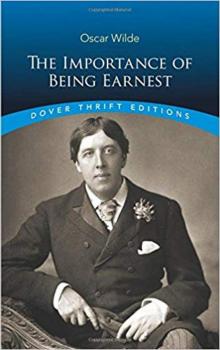 The Importance of Being Earnest
The Importance of Being Earnest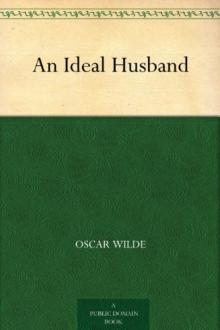 An Ideal Husband
An Ideal Husband Miscellaneous Aphorisms; The Soul of Man
Miscellaneous Aphorisms; The Soul of Man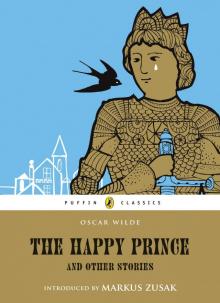 The Happy Prince and Other Tales
The Happy Prince and Other Tales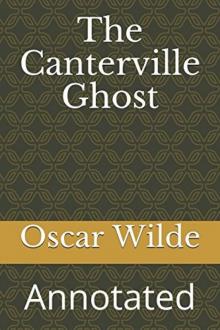 The Canterville Ghost: Annotated
The Canterville Ghost: Annotated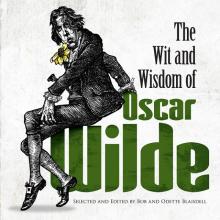 The Wit and Wisdom of Oscar Wilde
The Wit and Wisdom of Oscar Wilde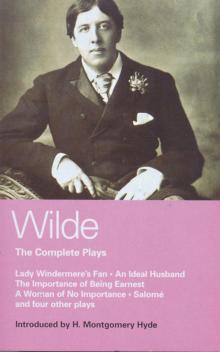 The Complete Plays
The Complete Plays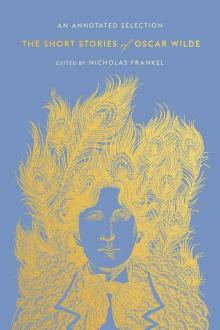 The Short Stories of Oscar Wilde
The Short Stories of Oscar Wilde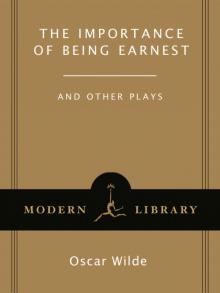 The Importance of Being Earnest: And Other Plays
The Importance of Being Earnest: And Other Plays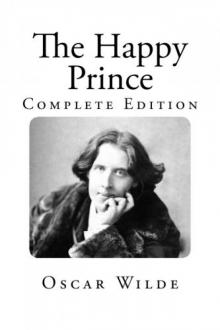 The Happy Prince (Oscar Wilde Classics)
The Happy Prince (Oscar Wilde Classics)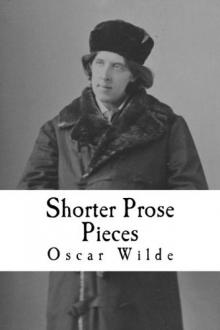 Shorter Prose Pieces
Shorter Prose Pieces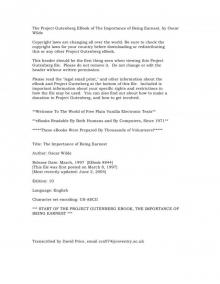 Importance of Being Earnest
Importance of Being Earnest Selected Tales: Shorter Prose Pieces
Selected Tales: Shorter Prose Pieces The Penny Dreadfuls MEGAPACK™
The Penny Dreadfuls MEGAPACK™ The Complete Short Fiction
The Complete Short Fiction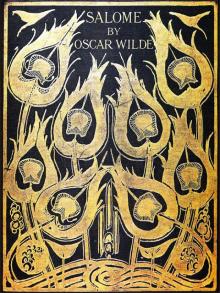 The Illustrated Salomé in English & French (with Active Table of Contents)
The Illustrated Salomé in English & French (with Active Table of Contents)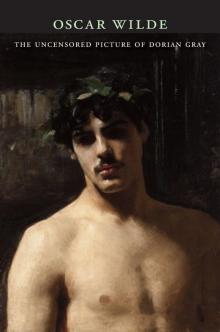 The Uncensored Picture of Dorian Gray
The Uncensored Picture of Dorian Gray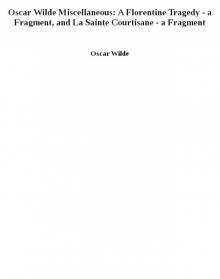 Oscar Wilde Miscellaneous: A Florentine Tragedy - a Fragment, and La Sainte Courtisane - a Fragment
Oscar Wilde Miscellaneous: A Florentine Tragedy - a Fragment, and La Sainte Courtisane - a Fragment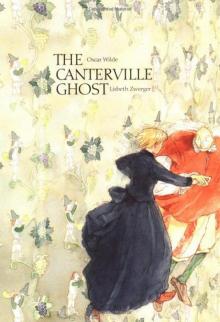 The Canterville Ghost (Illustrated by WALLACE GOLDSMITH)
The Canterville Ghost (Illustrated by WALLACE GOLDSMITH) Complete Works of Oscar Wilde
Complete Works of Oscar Wilde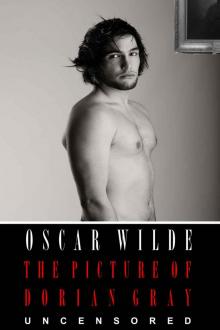 The Picture of Dorian Gray: The Uncensored Original Text (Annotated) (First Ebook Edition)
The Picture of Dorian Gray: The Uncensored Original Text (Annotated) (First Ebook Edition)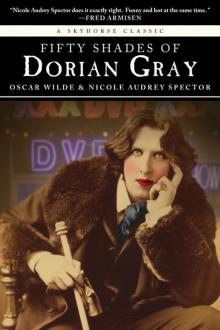 Fifty Shades of Dorian Gray
Fifty Shades of Dorian Gray Oscar Wilde's Stories for All Ages
Oscar Wilde's Stories for All Ages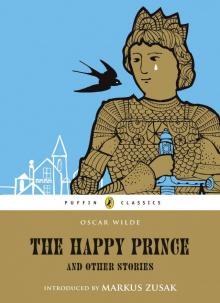 The Happy Prince & Other Stories (Puffin Classics Relaunch)
The Happy Prince & Other Stories (Puffin Classics Relaunch)